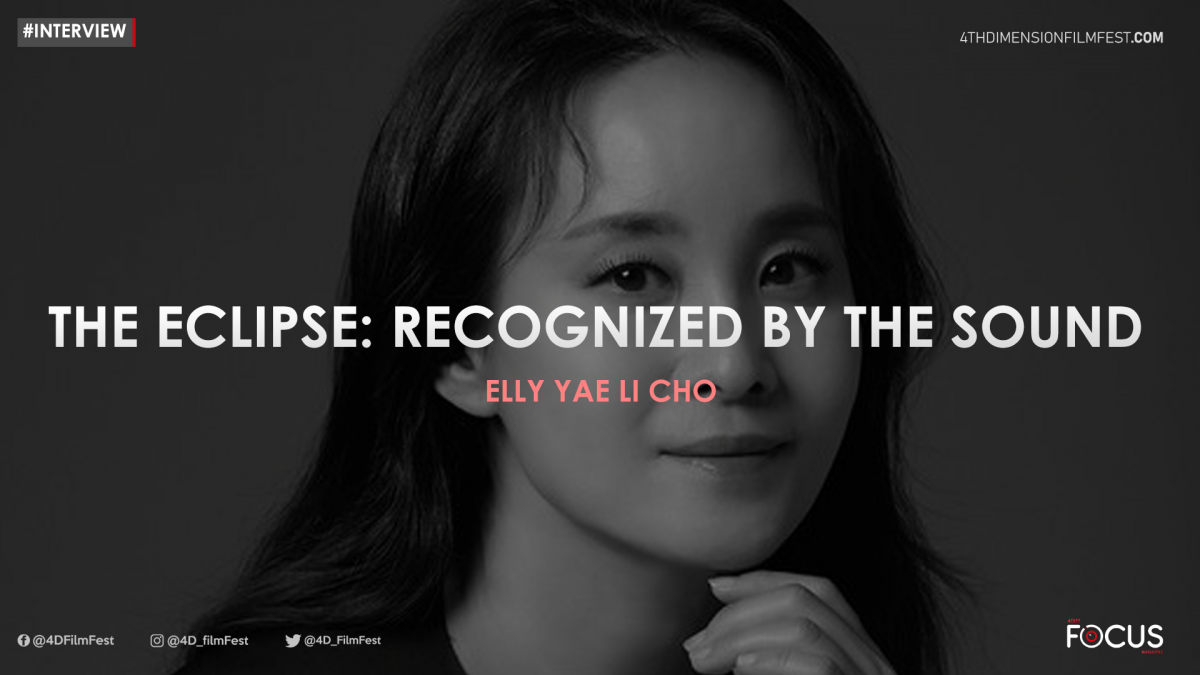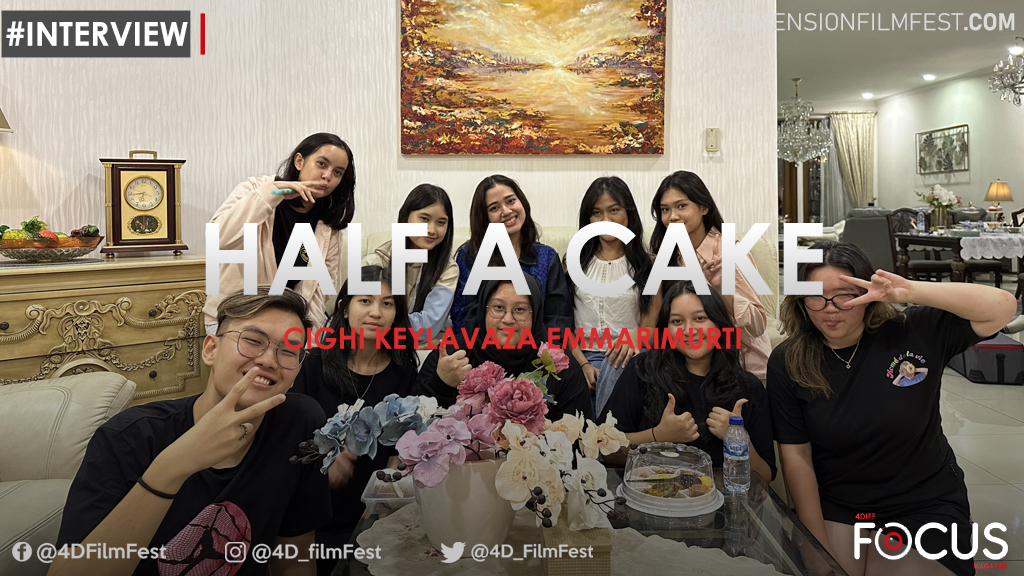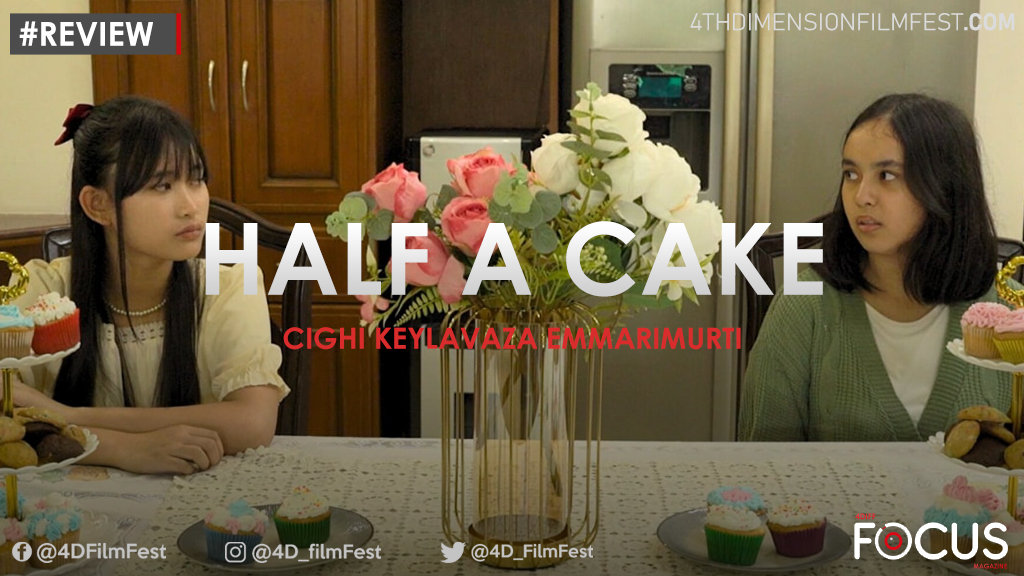Hello, Elly! Welcome to Focus. It is apparent thatThe Eclipse: Recognized by the Sound is extremely personal to you. How did you prepare yourself for the adaptation?
It was hard at first to think about starting the film about such a personal event in my life. But I always wanted to make this film in my artistic career. I started writing this script in 2014 and finished in 2015. The Eclipse: Recognized by the Sound is a silent film about my memories of growing up during my childhood that became fragments of imagery that composes the whole story.
How did your surroundings contribute to your upbringing?
This was filmed in three different places-Seoul, Jeju island and London. I filmed it in my own house and garden because all my childhood memories start from my house. Since my father had business in Jeju-Island. We used to spend every vacation there. It’s one of the most beautiful places in Korea. Being surrounded by mountains in my home in Seoul and spending a significant amount of time in the untouched nature in Jeju-Island, made me feel that nature is something precious in my life. I could only live in a house/apartment with natural surroundings even in London or New York.
Sound plays a key role in the film. How would you connect sound with memory?
The Eclipse: Recognized by the Sound is a silent film about my memories of growing up during my childhood that became fragments of imagery and composes the whole story. The sound was important not just because it’s a silent film but also because it communicates nature with the viewer. In Other words it makes up the story and completes the unspoken dialog. I was a quiet child and always wondered around in my own thoughts. I think nature was a friend to me when I was growing up. I liked wandering around the forest alone. This brought me back to the memories in nature and sound when I was composing the story in this film.
How different were Seoul and Jeju from each other? How would you describe each of them in one word?
Seoul is home and Jeju Island is a vacation because I used to go there when I am free of school days or weekends and stay at my other home in Jeju Island. I would say the difference was the surrounding nature. Jeju-Island had untouched nature in many areas in those days but Seoul is very much a city with pollution and traffic.
You have spent a significant time in London. So it is safe to observe that you have witnessed a massive cultural shift. In this backdrop and the emergence of Hallyu, where do you place yourself? How have things changed?
When I was in London it was before the emergence of Hallyu. There has definitely been a shift from those days. I felt there weren’t many Koreans in London in those days but it seems going abroad for college has become a common thing. Also people wouldn’t know Korean singers or actors in Europe back then but now it has changed completely as you can see. BTS has fans all over Europe. And you indonesians love K drama I heard!
I am amazed how our K-pop and K-drama is becoming popular worldwide.
Each frame of this film is beautifully edited and placed. Nature is a main component in every one of them. What does nature symbolise for you?
Since growing up I have experienced the importance of the nature and environment in Jeju-Island. I wanted to depict a young girl wandering in the woods and sea shore experiencing the untouched nature and communicating with nature which was my own experience. I wanted to communicate a message that can be self-read through the imagery and sound of nature in this film. And get an imaginative response of the viewer’s personal recognition about nature. I imagine this can be a variety of responses from wanting to be in nature to knowing their own value of nature. Therefore ,to me, nature symbolizes communication.
What does creation mean to you?
Creation for me is life. I cannot live without it. Drawing my ideas from fiction and reality, I combine existing and imagined personal memories addressing nature, environment, and the viewer. I feel that my inspiration will always be slightly different each time but the core subject about nature and the preciousness of the species in this world, will always inspire me for my work.
In the case of painting I start with drawing on paper or do a small piece first and then move on to a big painting. I experiment my ideas going back and forth between taking a chance and planning my drawings with lines on a picture plane. In the case of film/video, I tend to have sudden ideas and start developing the piece or it takes a bit of time to develop in my head first before I start planning a team meeting with the director of photography. I plan the whole piece both as a video and a performance piece.
Elly, tell us about something that inspired you to become who you are now!
I feel my parents inspired me a lot. My father was in the design field and used to collect paintings and objects so I grew up looking at those art at home. I feel that this was a big influence for me. I would like to thank my parents. Otherwise my dream was always to become an artist since a young age and has never been changed.
Why did you name this piece Eclipse?
Eclipse is the climax of an unforgettable event in the film. Eclipse in this film, also means a non answerable natural phenomenon connected to the day of my brother’s death. In this film, I seem to have locked time itself there and kept dreamlike quality throughout the film going back and forth from my childhood memories. As you noticed I am everywhere in the film, just like a memories comes and goes in our lives. Being a young girl in one scene then a grown up women in the next scene, mixed up just like in my head, confused about the phenomena of the eclipse happening at the very moment of my brother’s death. Not to mention that day when I woke up my car was covered with bird shits and couldn’t not see the color of its normal color. I had to go on a bus to meet a friend in Hyde Park to watch the Eclipse because I just didn’t know how to clean such a mess in my car. It was obscure and lucid. How could this have happened? I was confused and fearful. Then My sister called in the middle of the total eclipse and said that my brother just died unexpectedly after being hospitalized because of a pneumonia. That was such a shock to me that I dropped all my belongings on the grass and started running to my flat.
It’s like a collage of memories topped with desires, what I wanted it to be in a specific time. Because I couldn’t get a ticket to Korea for my brother’s funeral at the time, I placed myself in Seoul for the film. I would like to say that the total Eclipse is a radical poetry, depicting a powerful memory in this film.
This film is both a close inspection and an outcome of your childhood trauma. How did it feel after completing the filming?
I felt like I had let out something deep inside of me that has been desiring to be a film. I also felt it was making me realize which became an important turning point in my artistic career.
This film is important to me because it depicts who I am, why and what I am doing as an artist. During the process of making this film I discovered that my approach to art making is largely inspired by the relationship between nature, environment and the viewer’s perception of nature based on their personal history. So making an artwork about my own history made me realize what I should do as an artist which is to keep making artworks between nature, the environment and human behavior and protecting nature through art.




